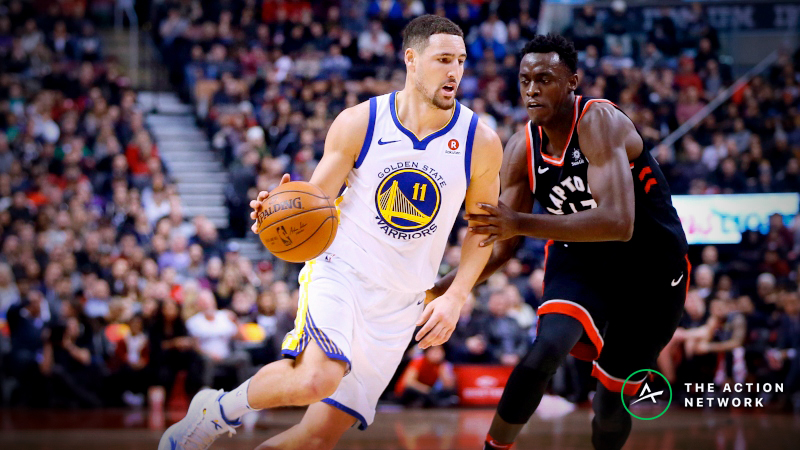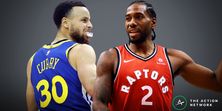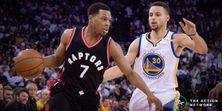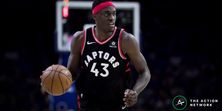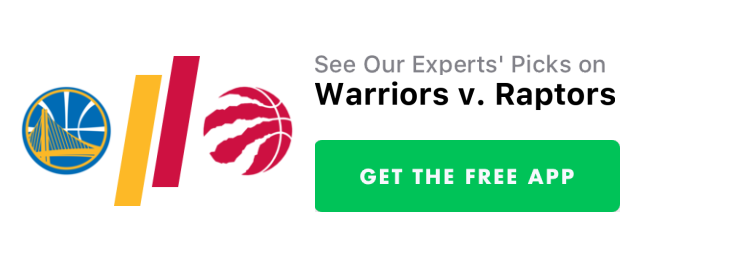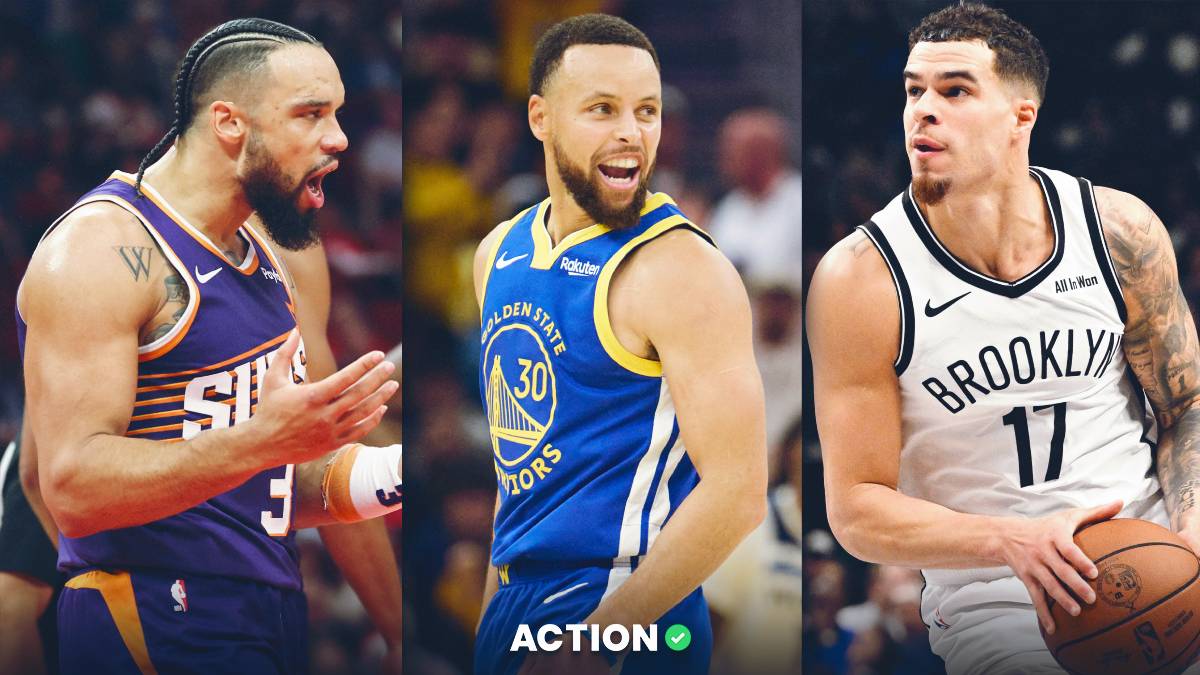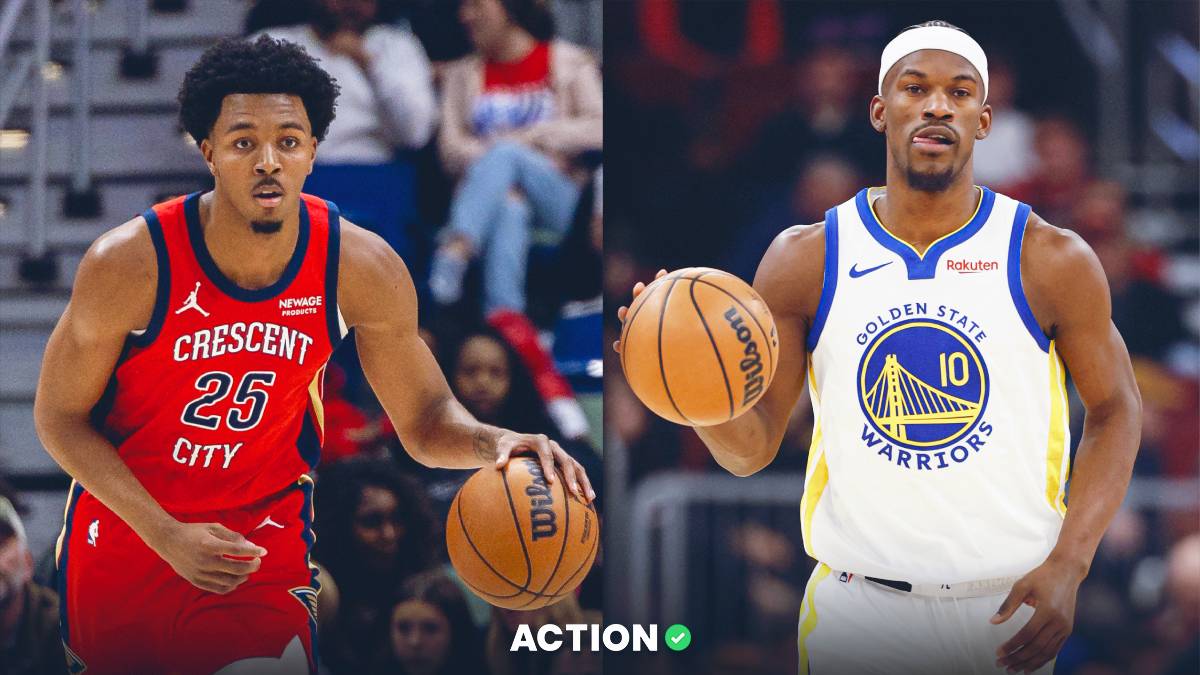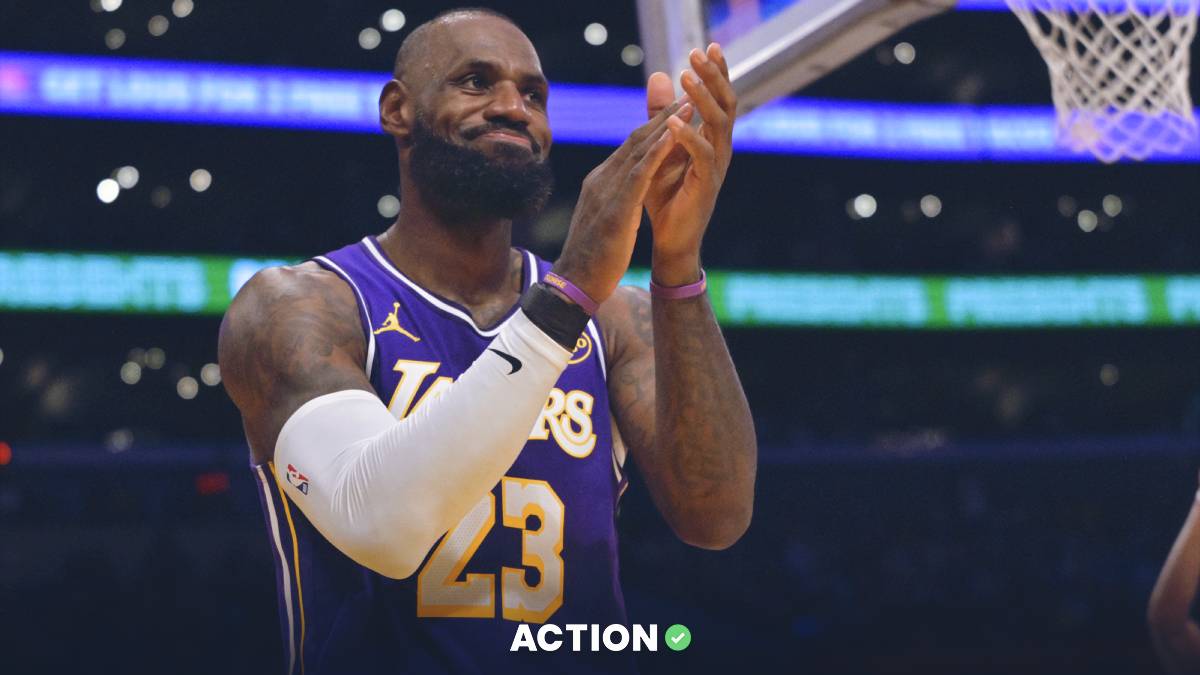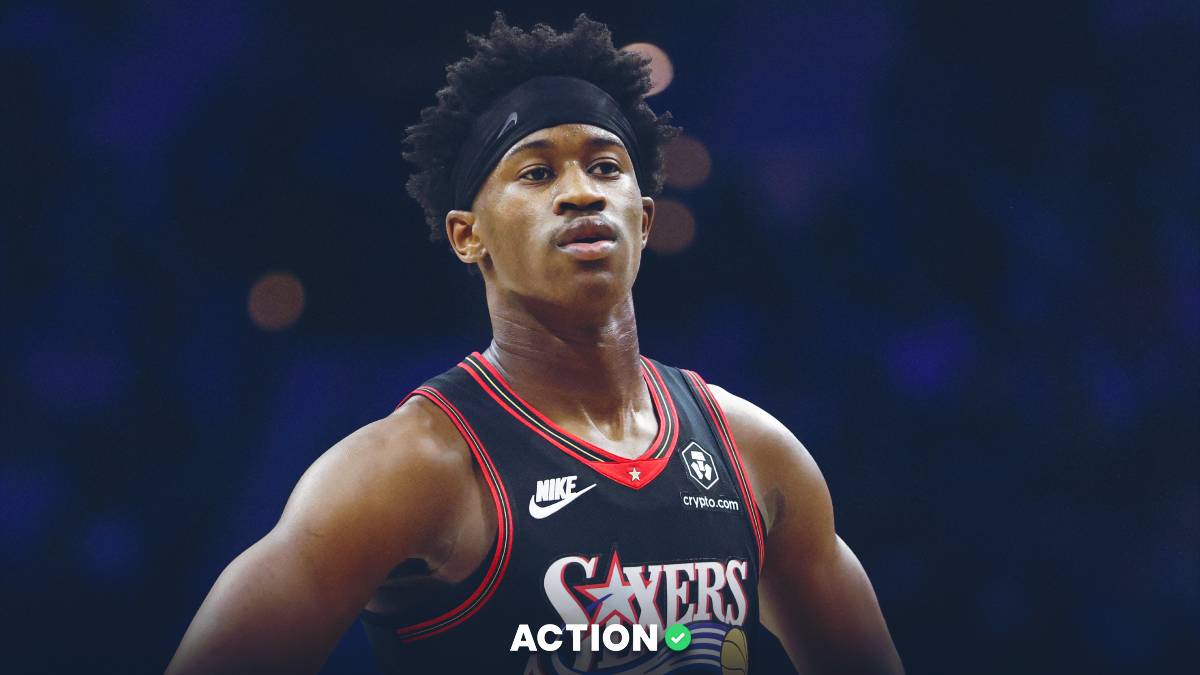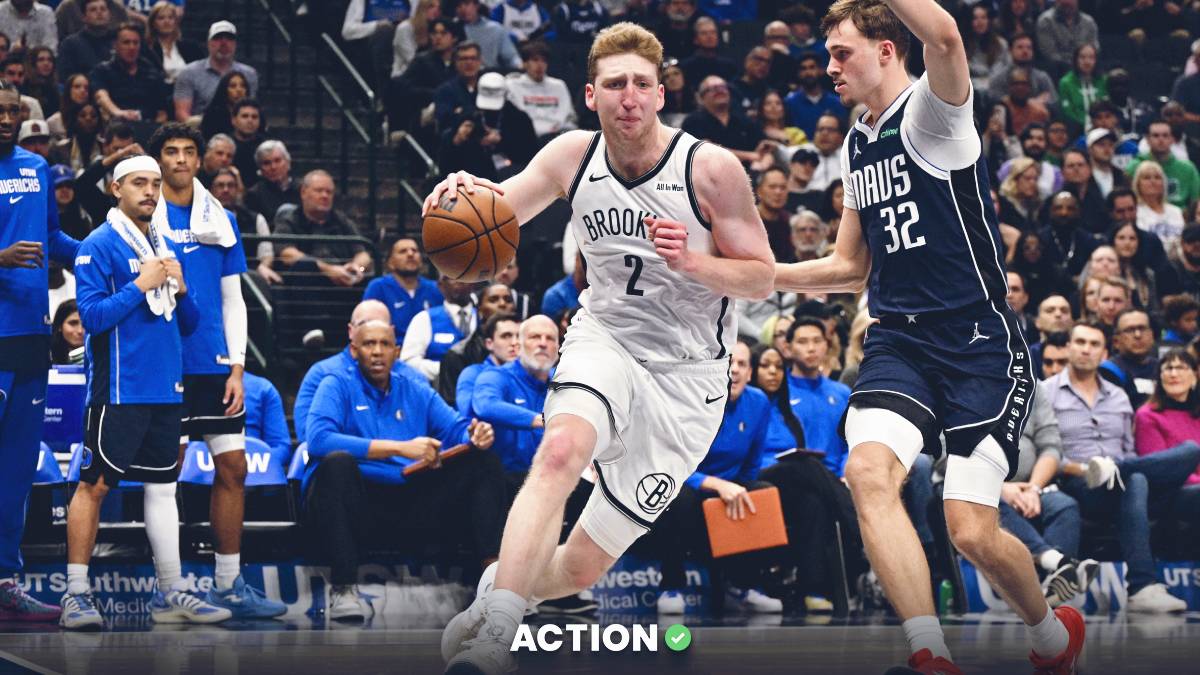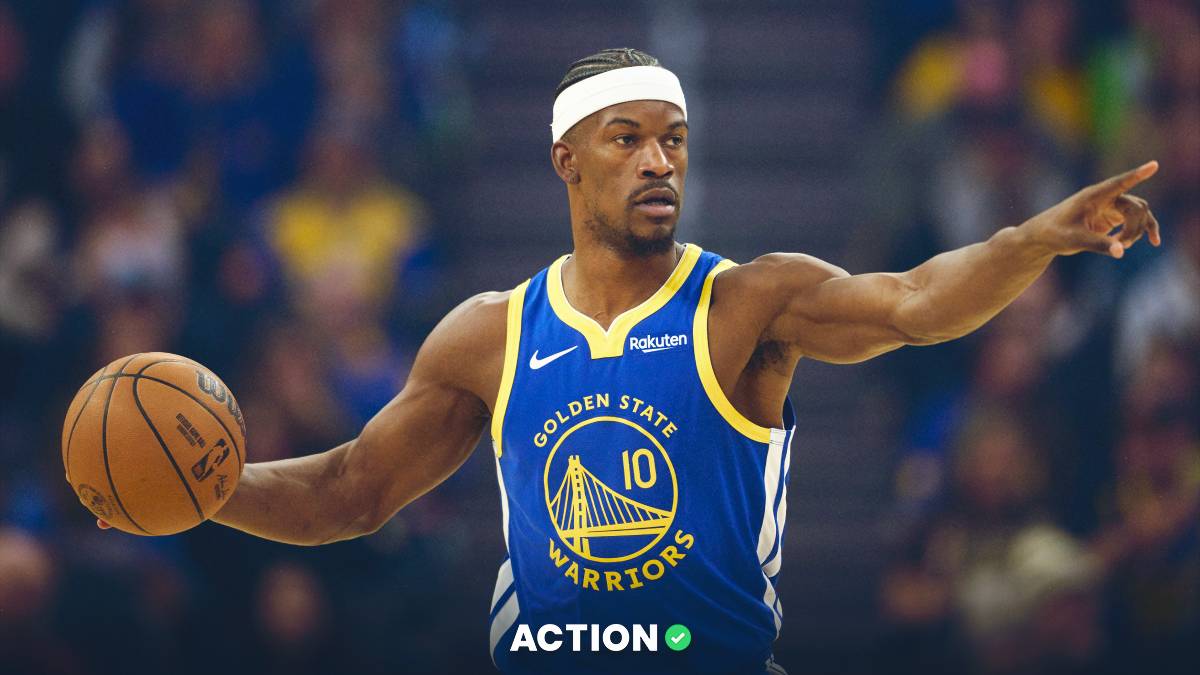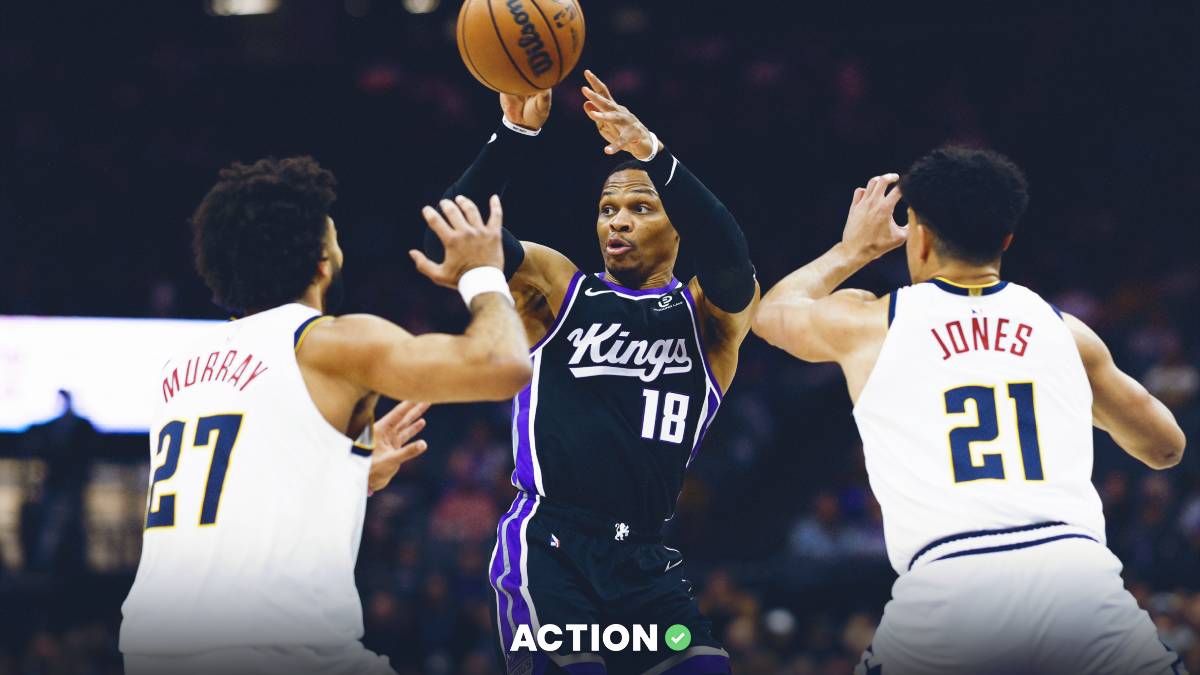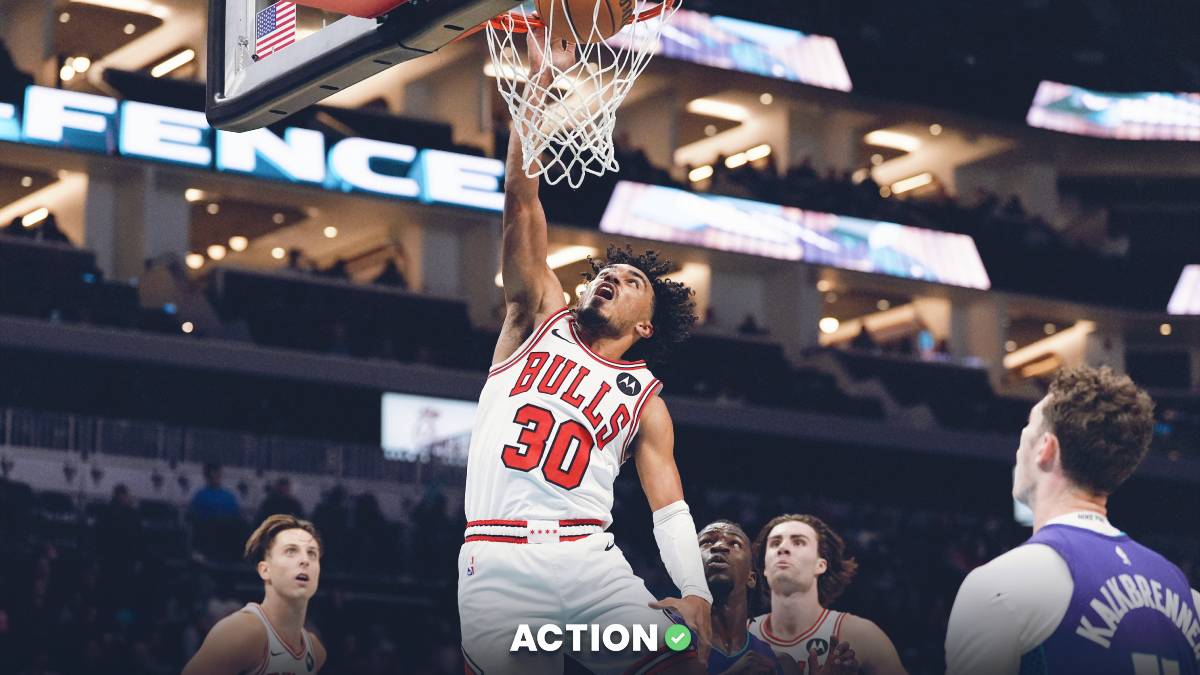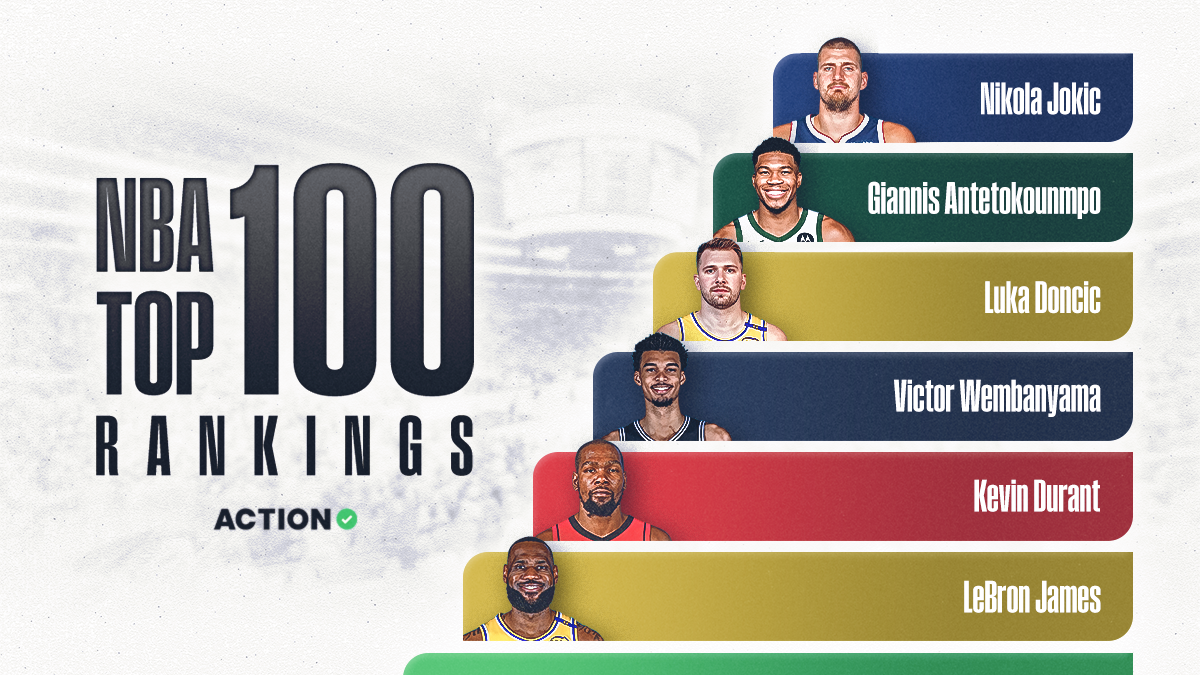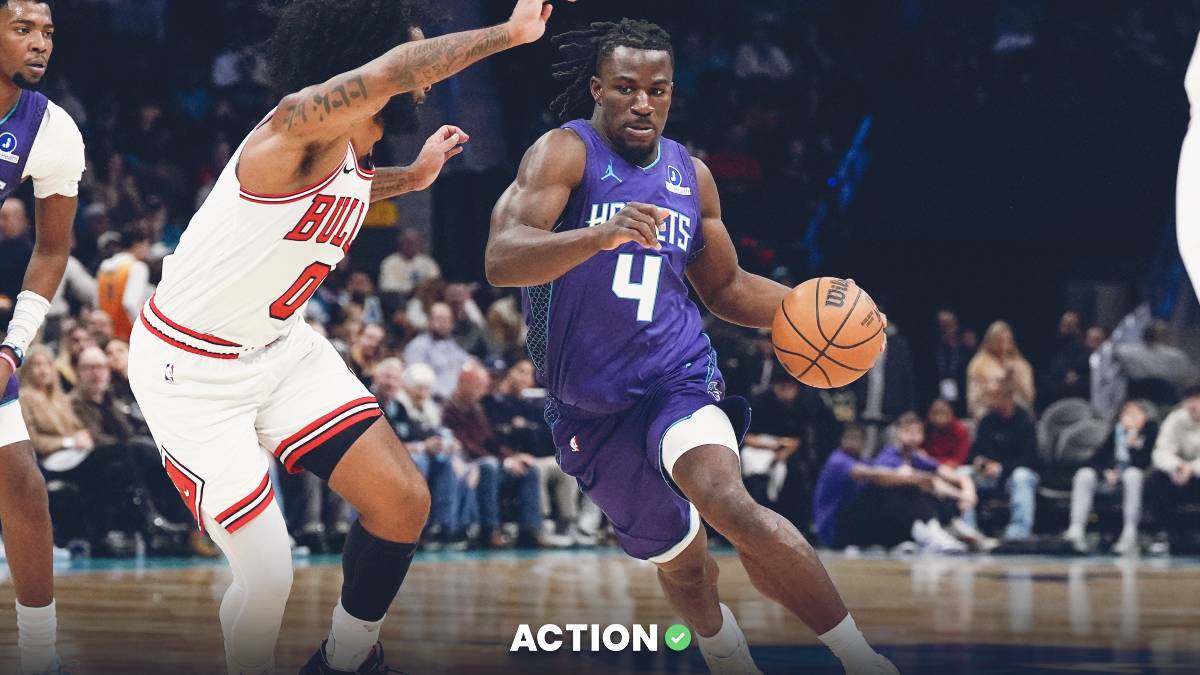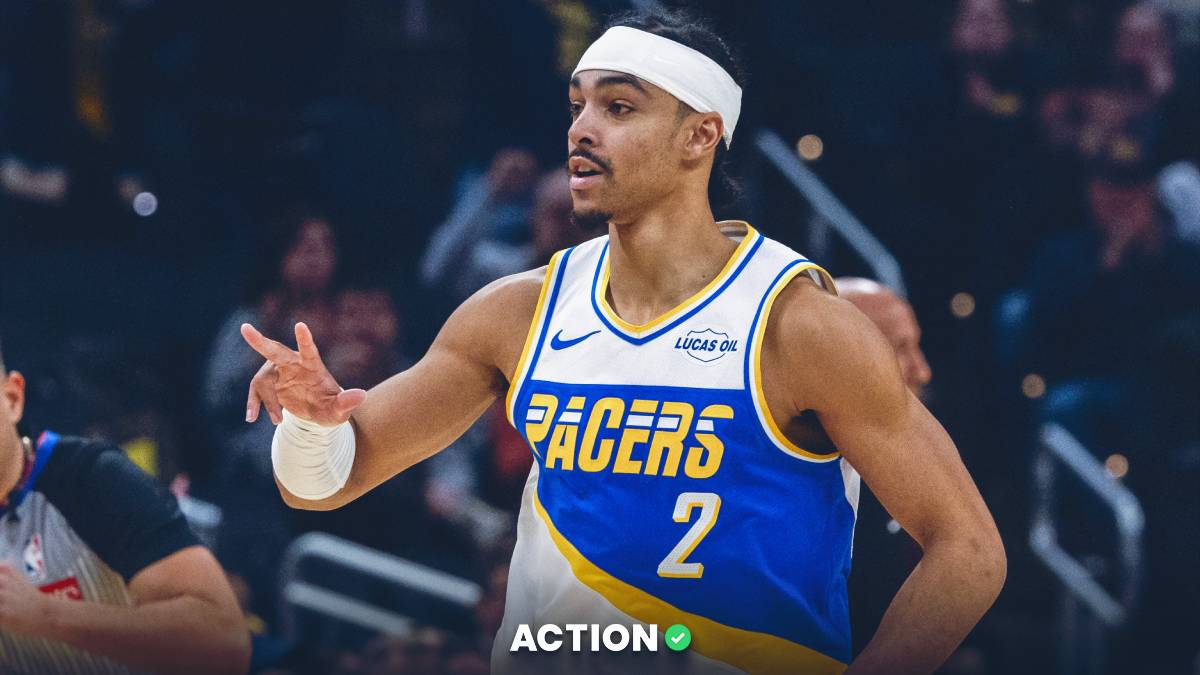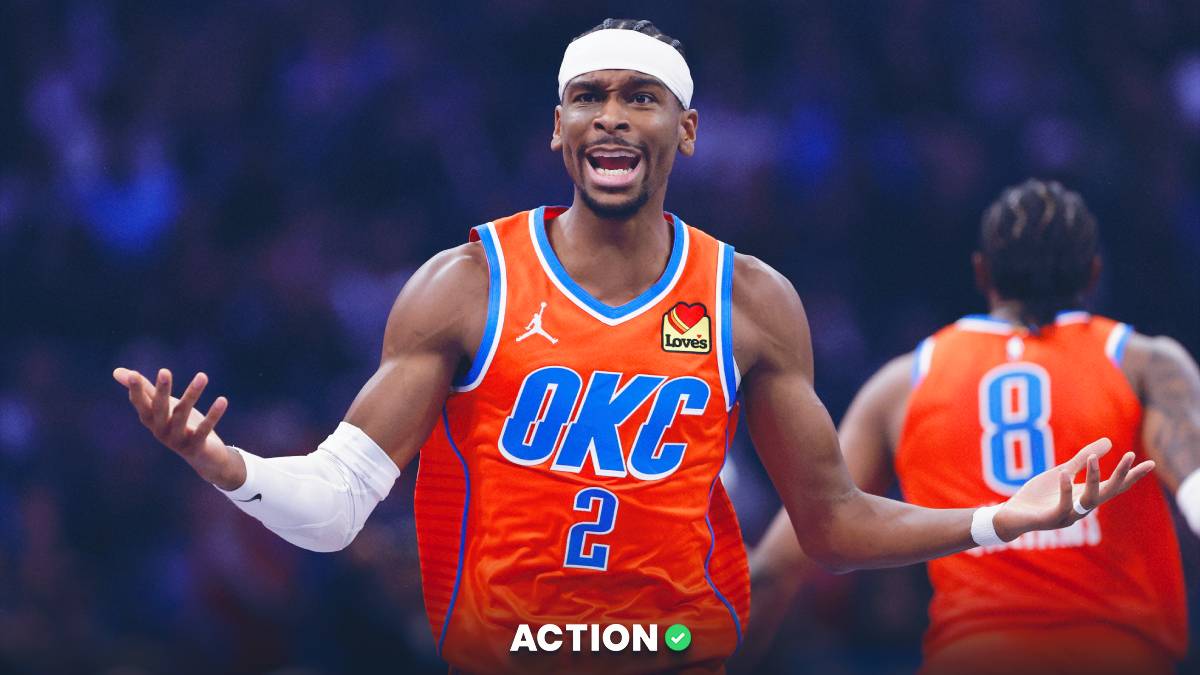- Are you holding a preseason Raptors or Warriors title bet and not sure if you should hedge during the NBA Finals?
- Ken Barkley (@LockyLockerson) is here to break down what you need to know before making those tough hedging decisions.
In October, you sat behind a computer screen and thought about how much you liked Kawhi Leonard going to the Raptors. Maybe you thought he was so much better than DeMar DeRozan that a bet on Toronto to win the title was justified.
Toronto had never made it that far before, but you reasoned that Leonard could be the difference between the city's past playoff failures and a new kind of success. You bet Toronto at +1850 to win the title.
For others of you, once the playoffs started, you saw that on the opposite half of the draw, in the Western Conference, Houston was in Golden State's "quarter." The Rockets were the Warriors' most difficult obstacle on that side, but you didn't think the Rockets were really that good (maybe due to past playoff failures of their own).
With Kevin Durant injured mid-series, you bet on the Warriors at -120 to win the title, because you thought maybe without Durant the team could find a new identity but replicate their previous title runs.
If you are someone who fits some form of this description and you have acquired either of these teams at a price like that (great work!), you might be asking a very simple question right now:
"Should I hedge?"
Let's go through some of the mechanics of how this type of bet even works, and then I'll ask some questions that can maybe help you decide which path is right for you with regard to the hedging decision you now face.
What does "hedging" mean in the betting world?
A hedge means that you have taken a position on one side of a bet, Side A. Since you took that position some time ago, conditions have changed where Side A's price has gotten much more valuable compared to when you bought it.
You want to limit your risk (because Side A can still lose or become much less valuable; it is not a sure thing), so you take an offsetting position on the opposite side of the same bet, Side B, at the new price in the market. By making the offsetting bet on Side B, you lock in a guaranteed profit no matter which side of the bet wins, but you do so at a cost of some of your potential winnings on Side A.
Sometimes, a real world example makes things clearer. Let's take the last professional sport that ended.
Let's say you bet on the New England Patriots to win the Super Bowl at 5/1 for $100. You earn a profit of $500 if they hoist the Lombardi Trophy. Several months later, the Patriots are even money to win the Super Bowl and are facing the Rams (who are also 1/1 in this example).
You now have a choice. You can "let it ride," meaning you take no additional action. If the Patriots win, you profit $500, but if the Rams win you are down $100 (because your Patriots ticket loses).
The more money you bet on the Rams, the more your profit on the Patriots goes down, but the more you guarantee getting money back no matter the outcome. You could bet $100 on the Rams at even money, and here would be your outcomes:
- Patriots win: +$400 (win $500 on Patriots at 5/1, lose $100 on Rams at 1/1)
- Rams win: Break even (lose $100 on Patriots at 5/1, win $100 on Rams at 1/1)
So that's a hedge. You didn't want to go into the Super Bowl with so much risk, so you offset some of it by also betting on the Rams.
Now back to reality and present day.
With the Warriors and Raptors tipping off Thursday, you might be dying to know if you should hedge some of your position on either team.
The bad news? There's no right answer. There isn't a textbook somewhere with the firm rules of all sports betting that you can just crack open. But in a way, that's also good news. You have the freedom to do what you want and know that (depending on circumstances) you aren't making a mistake. But here are some questions to consider when making your choice…
How much do the winnings mean in the context of your life?
Consumers of gambling media are inundated now with information about large bets at large prices and potential payouts. Tiger Woods winning the Masters. The Blues winning the Stanley Cup. Hundreds of thousands — or even millions of dollars — are at stake from small amounts. Each sporting event now has a magical ticket tied to it that we inevitably discover, and we either root for or against its owner.
If you have bet "too big," which really is just a matter of perspective, the amount at risk may be more than you can stomach. If you're a recreational bettor, you have probably had this happen to you in some way. Maybe you normally bet $50 a game, but you have $100 on Toronto at +1850, and you've never had $1,850 at stake in potential profit on a singular outcome.
The perspective here, and how much the money means to you, is the most important part of the hedging dilemma. If you are the bettor above, maybe hedging and guaranteeing about $425 in profit sounds really good right now. Maybe you need that money for a variety of reasons, some of which may not have been present when you made the bet. So you would set up the following:
Bet $1,423 to win $526 on Golden State to win series at -270
By doing this, you are setting up a completely offsetting position, where you guarantee the same amount of profit no matter who wins.
- Toronto wins: +$426 (Win $1,850 on Toronto future, lose $1,423 on Golden State series bet)
- Golden State wins: +$426 (Lose $100 on Toronto bet, win $526 on Golden State series bet)
Maybe you want to keep things a little heavier on Toronto, or vice versa, and so on. This is really just math, not some kind of optimal strategy. But if you find yourself playing way over your head (probably for much larger amounts than the example), and getting any money at all is of great significance, that's how you'd approach the problem.
Why did you make the original bet?
This is worth evaluating because I get messages on Twitter all the time from people who want hedging advice. And, generally, they almost always want to hedge out as quickly as possible and get their money.
But if the money isn't a huge deal in your life, there was a reason you made the original bet in the first place. Hopefully, the reason was that the price was incorrect compared to what you thought it should be. And the difference in your "true price" and what the market offered made the bet valuable.
You aren't going to win all the bets you make that fit this description, but if your ability to assess price is proven, you're going to win enough that you should never hedge — ever. If the price was wrong, it was wrong. You should be onto the next market and the next wrong price and not even think about this. You got the best of it. And that's all there is.
One other thing to consider: If your thought process was something like "well, if they get really far, I can just hedge out," consider betting in different markets. If you were always going to hedge the Raptors when they faced the Warriors, instead you could have tried to find the best price on them to win the East.
Or you could have bet their individual series prices on the road to the Finals. There were ways you could have avoided this headache for yourself. If the price offered by the sportsbook was a mistake (maybe all books were at 15/1 but one book was at 18/1 on Toronto, so you took it) that's obviously different, but it does answer the question above. Your answer is you didn't really have a choice. The price was wrong.
Is the current market accurate or do you still think it's off?
Sometimes in eagerness to hedge out of a large bet, your mind can be clouded and you miss the fact that you should wait even longer. If your methods of forecasting think Toronto is STILL very valuable even now, why would you buy out of your position?
If anything, you should be betting into all markets that you think are wrong, provided your methods are proven sound. So that means you should bet Toronto now, too, in that situation.
In for a dime, in for a dollar. If prices are wrong, they're wrong. They don't get less wrong just because you're nervous about the money.
Now, if you are a recreational bettor, and your handicapping methods are not as developed and may be based on something like intuition or biases, or just snap judgments looking at a sports betting page — that's OK; you've still stumbled into something great here. But it means you're less likely to be right as often, and so betting even more on Toronto is probably not the wisest move.
Does the order of wins and losses in the series suggest that waiting is a more profitable option?
Now we get really murky and questionable. It's arguable that because Kevin Durant will miss at least Game 1, if you have a Toronto futures ticket, you should wait a game before hedging because Toronto is more evenly-matched with Golden State in Game 1 than in any other potential game of the series.
If Toronto can win Game 1 at home, the series prices will change before the next game, and you could then bet Golden State and lock in more than you could have if you bet before the series started.
THIS is a strategy that gets discussed frequently among casual bettors, and my response is always the same: DON'T DO THIS.
Here's the reason: If you were able to predict with great accuracy who was going to win every game of the Finals, you would be an extremely wealthy person. You would be able to dominate an incredibly liquid market (NBA single-game sides) and bet very large sums on those outcomes. You wouldn't have to settle for future bets and hedging.
You are probably not able to beat this market, so why try to predict it? If your thing is futures, stick with what you're good at.Don't try to get into the game-to-game thought processes of the teams and use strategies like "hoping Toronto steals one early."
Anyway, good luck with those futures tickets!


